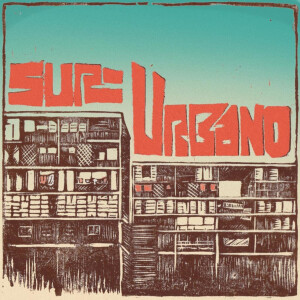
The History of Low-cost Housing and Informality in Peru with Helen Gyger - Part I of 2
 2023-10-31
2023-10-31
The significance of Peruvian history on the topic of informality, however, is not restricted to this nation. Some of the most emblematic experts on informality - from John Turner to Hernando de Soto - came out of reflecting on housing in cities like Lima and Arequipa, before their ideas were exported to Latin America and around the world.
Today we talk with University of Technology Sydney researcher Helen Gyger on her book “"Improvised Cities: Architecture, Urbanization, and Innovation in Peru," which was also the topic of her PhD dissertation at Columbia University.
As it turns out, when Helen interviewed John Turner on his experience in Peru, he told her she had to look further back and at the Peruvian architects, politicians and academics who were pioneers in addressing low-cost housing. In this episode, we do just that. Cohost Kelly Ros Mery Jaime and I talk to Helen about three figures whose different approaches continue to define the terms of the debate around housing provision and informality today: Fernando Belaúnde Terry, Pedro G. Beltrán, Adolfo Córdova.
We discuss their visions for architecture and low-cost housing provision in the 1950s, ther impact on how informality and the role of the state was conceived in the developmentalist era, and their continued legacy.
Helen Gyer is a researcher on architecture history at the University of Technology Sydney and previously was a Postdoctoral Researcher at the University of Pennsylvania. She holds a PhD in the history and theory of architecture from Columbia University.
Kelly Ros Mery Jaime is an architect at the National University of Engineering in Peru, researcher and activist on housing issues. She holds a master in urban development planning from Manchester University.
More Episodes
 2024-10-14
2024-10-14
 2023-11-07
2023-11-07
Create your
podcast in
minutes
- Full-featured podcast site
- Unlimited storage and bandwidth
- Comprehensive podcast stats
- Distribute to Apple Podcasts, Spotify, and more
- Make money with your podcast
It is Free
- Privacy Policy
- Cookie Policy
- Terms of Use
- Consent Preferences
- Copyright © 2015-2024 Podbean.com




